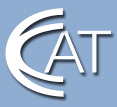Explore high-paying careers in clean, high-tech Connecticut manufacturing.

Educators: Externships
Externship Summary - 2009
RCNGM Leader: Ralph Minaya, Academy of Engineering and Green Technology, Hartford High School
Externship: Hamilton Sundstrand, United Technologies Corporation
Lessons Learned
The most useful component of the externship was being able to learn a manufacturing process that involved the use of technology, and at the same time to have the opportunity to improve such a process using data analysis through statistics process control (SPS) applications. The most challenging component of my externship was to learn the process certification guidelines used in the work center in order to develop a process improvement approach to meet the department’s expectations
Impact on Student Learning
I am pleased with the implementation of the project in my classroom. This curriculum is perfectly aligned with the Quality Assurance unit in the Project Lead The Way (PLTW) curriculum. Most of the students have learned many important concepts and skills that will benefit them when they enter in the job market. For example, they learned the concept of standard deviation when applied to a manufacturing process. They are familiar now with the definition of a “fin” when applied to the aerospace industry. Students now recognize what a heat exchanger is, and what are the many applications in the aerospace industry. They learned how important is to know statistics to control manufacturing processes including the Fin Forming Process at Hamilton Sundstrand.Â
Students have also been exposed to the concept of Normal Distribution and the calculation of the manufacturing indices Cp and Cpk. They have also been exposed to the leading Statistic Process Control (SPC) software, Minitab. They have been challenged to follow a very technical procedure (Standard Work, as called at Hamilton Sundstrand) to improve the Fin Forming Inspection Process. I designed this procedure having my students in mind. Their interface with new technologies was very intense, but rewarding. Most of the students had a very limited experience working with Microsoft Excel software. They have been challenged to make formal presentations.
This work-based curriculum has impacted students in many ways. In order to get students excited on learning the new concepts, I had to introduce the project with a hands on activity called “The Candy Lab” where students have to analyze samples of “m & m” candy and make predictions about the expected quantities of candy, by color, in a bag. They worked in groups and have to perform the analysis using MS Excel. I really believe that the fact that they have to perform the analyses using the computer keep them very motivated. These hands on activities are different than what they are used to in traditional school environment. Furthermore, they are aware that these technologies will make them more competitive in the labor market.
Externship Sustainability
I will share my externship experience with the board of directors at the academy. I will also present my findings to all my peers at the staff monthly meetings. I will also share with them the impact that the project had on students during the implementation. I will share details of the project with the different math teachers to see if some portions of the project, maybe the data, can be used as part of their classroom instruction. This project data and information is suitable to be implemented in different Math courses, like Algebra 1, Algebra 2, Pre-calculus, probability and Statistics, and Information Technology, Technical Writing, among others.
I am positive that this type of projects will help students to develop numerous skills that will be beneficial for the profession/technical careers. By taking the time and patience to help students to learn these technological tools, students will be able to become more marketable in a manufacturing/business environment because what they learn is what is used in most of the businesses in the market. For example, the use of Microsoft Excel as a business tool to solve real world problems add value to any business students get into.
My plan is to implement this project as a viable way for students to become marketable in the job market, and as an academic tool that they will be able to use in post secondary education. The administration must sponsor programs like these on a regular basis. Learning a manufacturing process every year during the summer is not enough. We need to find a way so that teachers with business/ engineering experience learn a few manufacturing processes during the school year and transfer these skills to students right away. This is especially important for senior high school students who will not have the opportunity to see more projects once the graduate. These types of projects do not need to be implemented during regular classroom hours. They could be assigned as special assignments, and discussion meeting can be done after school or online. The duration of the project will be a month.





